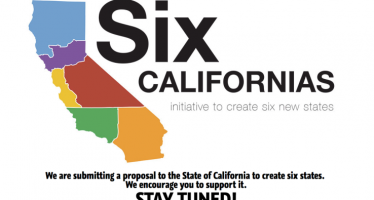Forced March to the May Revise
By JOHN SEILER
Things are looking bleaker by the day for Gov. Jerry Brown’s proposed $12 billion tax hike. So far, Republicans have remained rock solid against it, denying him the two GOP sellout votes he needs in each house of the Legislature to put a tax-increase before voters.
Meanwhile, here’s what’s happening:
1. Gas prices keep going up at the pump, having doubled in the past year. Some forecasters are expecting $5-a-gallon a gas by Memorial Day. That means Californian families already are paying about $1,000 a year more — the amount Brown’s tax increase would gouge the average California family.
Add it up: that’s $2,000 in added costs for each family. How many families will buckle under the pressure and leave for another state? True, gas prices are up everywhere. But a move to Texas means paying no state income tax at all, saving perhaps $4,000 over a year for the average California expats.
2. Tax day is approaching. This year it’s April 18, instead of April 15. Same difference: California taxpayers suffer what I call “tax shock” — paying huge amounts to the dysfunctional state government.
The bill due on April 18 is for the 2010 tax year, so there’s no tax relief there. But the 2009 Schwarzenegger income-tax increase expired already on January 1, 2011 — three months ago.
When people sign their huge California tax checks, slip them into the envelope, then drive down to the local Post Office to brave the heavy tax-day traffic — will they be in a mood to want increase their taxes? Not likely.
3. In early May, Gov. Brown comes out with the revision of his January 2011 budget proposal, called in Sacramento parlance the May Revise. Because he was unable to get a tax increase on a June ballot, his May Revise will have to calculate an all-cuts budget for fiscal 2011-12, which begins in July 1.
That is, it will have to factor in not getting any of his $12 billion in tax increase.
It will be the dreaded (to him and other government functionaries) “all cuts” budget.
Here’s the great part: It will show that, yes, California can survive an all-cuts budget. Those departments of government suffering the cuts will howl. Legislators in the Government Union Party (Democrats) will holler that it is impossible, that taxes really must be increased.
Schemes will be hatched to increase taxes anyway, through a majority vote (instead of the constitutional requirement of two-thirds) or by peeling away four Republicans, two from each house, to back tax increases. But such schemes likely won’t go anywhere.
The reality will be that the cuts will have to be made.
4. On July 1, D-Day will arrive, with the tax cuts wading ashore at a Normandy Beach defended by the tax increasers. The state will not fall apart. Instead, newly liberated taxpayers will dance in the streets.
All the prophecies of doom and gloom — even of Armageddon — should taxes not be increased, will not occur.
A new state budget, of course, will not be complete. Budget wrangling, as it almost always does, will continue well into the new fiscal year. The state may have to issue IOUs to state tax beneficiaries, pending a budget resolution.
But for almost everybody outside government, life will go on as usual — just with a few more coins jangling in our pockets.
For some folks, tax cuts will mean just squeaking by on the mortgage, avoiding foreclosure. For others, it might mean making a late car payment and avoiding the repo truck’s arrival.
For others, it might mean some new clothes for the kids. Or paying down a little more on a credit card. Or a marriage on the rocks might be patched together with a dinner for two, previously unaffordable, at a nice restaurant.
Maybe summer band camp now can be afforded for the next Louis Armstrong. Or capital can be saved to start, by some pimply teenage geeks, the next Apple or Facebook, creating thousands of new jobs — even new industries. Or a few dollars more can be given to a vital charity.
Government insists that it gets first crack at our money. And if we don’t pay up, our bank accounts can be raided; we even can be sent to prison.
But regular people — parents, workers, entrepreneurs, students — need their own money, too, for their own needs.
An economy doesn’t run on taxes. Rather, taxes can be collected only after something to be taxed first is created in the private sector.
Within the next couple of months, Californians are going to find out that, even after the state government has been whittled down — finally, after decades of waste and bloat — the people of this state will survive, even thrive.
Californians will find out that they don’t need so much government.
Related Articles
Legislative transparency bill shelved again
Congresswoman Nancy Pelosi was mocked for saying about the Affordable Care Act, “We have to pass the bill so that
Low turnout in 2014, high initiative count in 2016
Elections have consequences. Ironically, California’s abysmal election turnout this November has teed up a veritable flood of ballot initiatives for 2016.
CA loosens sex offender restrictions
California’s strict limits on housing for sex offenders have been effectively wiped out, thanks to the consequences of a shift





